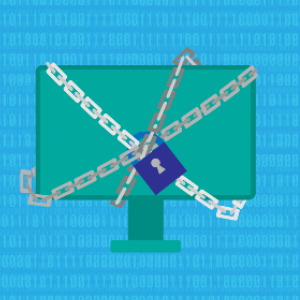
Private organizations, government entities, and small businesses all rely on computerized systems to manage their operations. The trends in cybersecurity are brought about by changes in technology as individuals and organizations try to remain relevant in various industries.
Cybercriminals attack individual and organizational systems for malicious reasons causing serious damages to such systems. Organizations must be keen about cyberattacks by complying with security laws when implementing cyberattack prevention strategies. It is important to understand the latest trends in cybersecurity.
Artificial Intelligence Continues to Rise
The use of technology in business is becoming a common phenomenon, with many organizations leveraging AI and machine learning. AI has been important in developing security systems such as threat detection, natural language processing, and face detection.
AI can be used to predict systems’ attacks and send signals to the protocols of security in case of a data breach. Many organizations continue adopting AI for security implementation because it is easier to analyze large volumes of data. AI is automating security for large and small organizations and is replacing human intervention in matters of security.
Cloud Service Attacks are On the Rise
Many organizations have been using cloud services because of their scalability, efficiency, and cost-effectiveness. Cloud applications such as Microsoft and Google have put in security measures to prevent themselves against data breaches.
Despite being well-equipped with security, the user side of things continues to be exposed to phishing attacks and malicious software. The trend of organizations and businesses moving to cloud storage will continue expanding in the coming years. However, most cloud services do not have security encryption, authentication, and audit logging, so security experts must ensure that the security measures are up to date.
The Adoption of Multi-factor Authentication
Passwords are not exclusively ideal for safeguarding the security of sensitive data in organizations. More companies are likely to use multi-factor authentication (MFA) to safeguard their data against attacks and possible breaches.
MFA is all about using two or more different factors to authorize access to data. People have to reveal their identity using multiple devices. However, phone-based MFA is not ideal because telephone networks have weak security systems.
The Demand for Cybersecurity Experts is On the Rise
The increase in cyberattacks is causing organizations to invest more in cybersecurity experts such as cybersecurity analysts, technicians, and administrators. The experts help to protect the digital information of organizations and also develop, test and analyze security systems.
These experts manage the systems’ vulnerability and respond to any security threats in organizations. With the AI-powered systems, the experts will help businesses prevent cyberattacks by securing and monitoring networks.
Ransom Attacks are On the Rise
Ransom is a very common threat to organizations’ data security, in which malware blocks data access in a digital environment. The malware attack is evolving, especially in developed countries, prompting businesses and organizations to institute checks and measures against the attacks.
The attacks are also common in industries that use specific software for their operations. Cybercriminals attack systems by stealing sensitive data and encrypting it before use- recovering from such attacks becomes difficult.
Insider Threats May Continue Rising
An organizations’ employees may impose threats through human errors that may be intentional or unintentional. Any data breach may destroy the reputation of organizations for a long time and affect their performance in the long run.
Insiders may access sensitive financial, customer, or employee data and manipulate it for personal gain. It is important to focus on cybersecurity awareness in organizations by training employees about the best ways to safeguard data. Conducting regular assessments can enable organizations to understand the possible damage that malicious insiders may cause.
Remote Working Poses New Threats
The COVID-19 pandemic has caused many organizations to shift to working from home, majorly impacting data security. This shift entails unplanned migration to the cloud and quick purchase of IT equipment to accommodate the remote landscape. Many organizations tried to ensure the continuity of businesses by implementing security measures. However, it has created risk and vulnerability in various industries as a result of massive remote data sharing. Since the remote working trend may continue post-pandemic, organizations may need to continue assessing their security infrastructures.
The Discipline of Data Privacy
Cyberattacks are exposing lots of personally identifiable information records, raising concerns about data privacy. Rather than remaining one component of organizations’ security programs, data privacy will be an independent program.
There has been an increase in regulatory compliance requirements where organizations must focus on data privacy efforts. Data privacy has a significant impact on various aspects of an organization, such as the creation and implementation of corporate strategy.
Emphasis on Real-time Data Visibility
The efforts of executives managing cybersecurity issues are weakened, especially where there is no clear picture of the technological landscape. Some executives lack IT asset stock or a list of cloud applications or third-party suppliers.
To deal with such limitations, organizations need to introduce real-time data visibility and security automation to manage data protection. They can safeguard data against possible loss by understanding the exact data location on a real-time basis.
Conclusion
Today, there are many cyber security trends, and concurrently, cybercriminals are creating unique ways to attack systems. Organizations and individuals should be cautious not to lose sensitive data and information to criminals because it may damage their reputations. The security infrastructure should be an important part of all organizations as it can enhance the continuity of business operations by minimizing risks.
_________________________________________________________________
John Peterson is also very passionate about essay writing. Please check out these links provided by John that were not included in the content:
